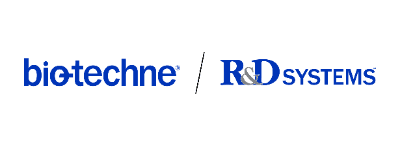- Gain first-hand insights from leading researchers and opinion leaders discussing breakthroughs in cancer biology, stem cells, imaging platforms, and translational applications.
- Explore the latest findings on extracellular vesicles (EVs) in cancer research and their potential as transformative biomarkers for early detection, diagnosis, and monitoring through liquid biopsy approaches.
- Learn how advances in optical and nanoplasmonic sensing are redefining sensitivity, reproducibility, and scalability in single EV analysis.
- See real-world demonstrations of next-generation technologies designed to enhance research outcomes and streamline biological discovery.
- Connect with a global community of scientists across disciplines and participate in conversations that shape the future of cell biology.
Cellular Insights Series: Innovations and Ethics in Stem Cell Research
Free Virtual Event
October 23, 2025 | 12:00 PM EDT

Featured Session: Bridging Innovation and Ethics in
Stem Cell Research
The stem cell field stands at a transformative crossroads where breakthrough technologies are rapidly advancing from laboratory discovery to clinical reality. This webinar brings together two leading perspectives on navigating this critical transition: the scientific promise of human stem cell-derived organoids for drug development and the ethical frameworks essential for responsible innovation.
Dr. Todd Herron will present groundbreaking work on 3D cardiac organoids as New Approach Methods (NAMs) that are revolutionizing preclinical drug safety testing. With the FDA now accepting NAM data in place of traditional animal models, human induced pluripotent stem cell (hiPSC) derived systems offer unprecedented physiological relevance for cardiac safety screening. Dr. Herron will share insights from validation studies and explore how 3D organoid technology is advancing beyond validated 2D models to create more predictive, human-relevant safety assessments.
Prof. Rosario Isasi will examine the ethical landscape that must evolve alongside these scientific advances. As stem cell technologies converge with genome editing, sophisticated animal models, and clinical applications, existing governance frameworks face unprecedented challenges. Drawing from the ISSCR Guidelines for Stem Cell Research and Clinical Translation, Prof. Isasi will explore how to maintain public trust while enabling innovation through adaptive oversight strategies that balance scientific rigor with ethical principles.
From our sponsor, Bio-Techne, Dr. Paul Tetteh will present recent advancements in organoid culture leveraging (1) AI-modified engineered proteins (thermostable FGF10 and Wnt3a agonists) to improve organoid culture workflows and (2) a fully defined synthetic-component derived hydrogel matrix to mimic the extracellular matrix as an alternative to BME, tested for compatibility across human stem cell-derived intestinal and lung organoid cultures. Dr. Tetteh will discuss the benefits of combining defined matrices with engineered proteins to overcome organoid workflow limitations for more reproducible, scalable, and clinically relevant alternatives to traditional reagents, with the potential to improve key organoid applications including disease modeling and therapeutic development.
Together, these presentations illuminate the dual imperatives driving modern stem cell research: harnessing transformative technologies to accelerate drug discovery while ensuring ethical frameworks keep pace with scientific possibility.
*A Certificate of Attendance will be sent to participants who attend the webinar live*
The first webinar in this series, Cellular Insights Series: Unlocking Cancer Insights with Extracellular Vesicles in Liquid Biopsy, is available to view on demand.
About This Series
Wiley and the American Society for Cell Biology (ASCB) are excited to present a new dynamic webinar series spotlighting cutting-edge advances in cell biology, leading up to the highly anticipated Cell Bio 2025 annual meeting.
This series brings together leading voices in cancer research, stem cell biology, and advanced imaging to spark discussion, share innovation, and provide researchers with actionable insights that can accelerate their work. Whether you are investigating fundamental cellular mechanisms or driving translational applications, this series offers valuable perspectives for the entire biological sciences community.
Why should you attend:
Our Sponsor
